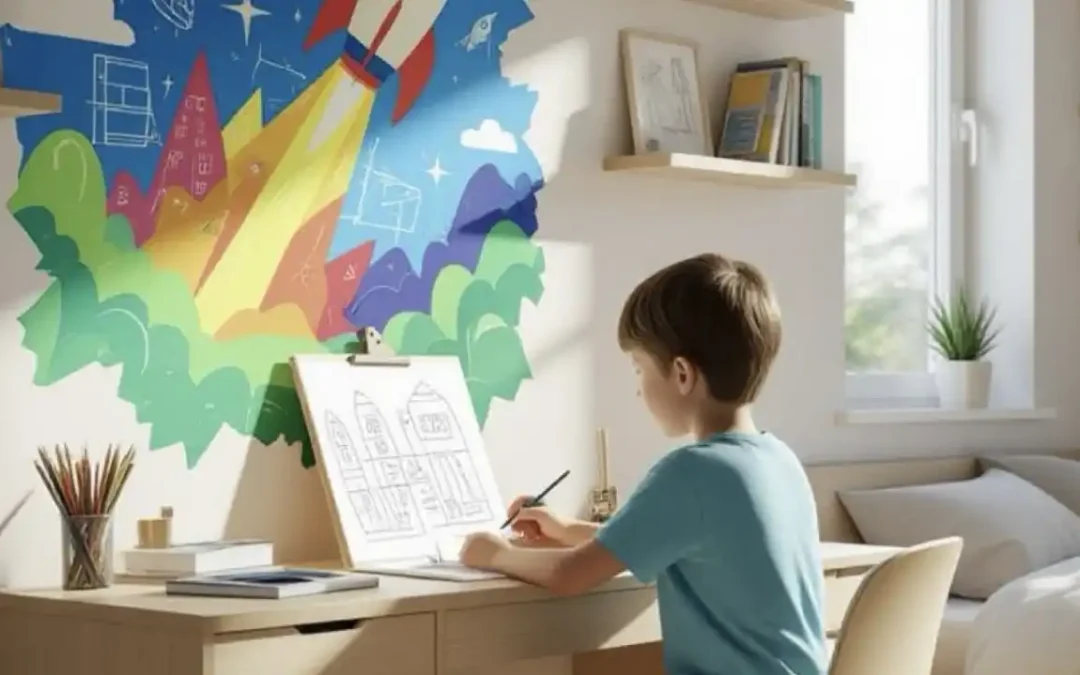
Rooting Curious Habits: Share Your Whys
S
ometimes the best way to spark a child’s curiosity is to share your own. A breeze through the curtains, a hum from the city, steam rising from soup—everyday moments become richer when you voice your own questions aloud. “What makes the air stir?” “Why do cities buzz at night?” When kids hear these musings, they realize that wondering doesn’t end with childhood. It deepens. Sharing your “why” shows them that even adults carry questions—and that curiosity is a way of living, not a stage to grow out of.
One evening, my son stared at the streetlamp flickering outside. “Why does it blink like that?” he asked. I shrugged and said, “Let’s guess.” We each made up a theory—one silly, one serious—and left it at that. The next night, he pointed to a plane overhead and asked, “Where do you think it’s going?” It became a game: trading guesses, asking questions, wondering out loud. He didn’t always want answers—he wanted the permission to stay curious. That’s what stuck. He learned that questions don’t need to lead anywhere to be worth asking.
Encourage their own wondering by speaking yours into the air. During a walk or while cooking, let your questions surface naturally. For younger kids, keep it playful—why do shadows stretch or soup bubble? For teens, invite bigger patterns—why people act a certain way, or what makes a place feel alive. Return to these shared puzzles later in the day to show that wondering isn’t fleeting. It lingers, connects, and grows—especially when you make it a habit worth passing on.
Rooting Curious Habits

Rooting Curious Habits: Ignite Their Dreams
Support children’s ambitions with encouragement and curiosity. Big dreams inspire confidence, direction, and meaningful purpose.

Rooting Curious Habits: Reward Their Efforts
Rewarding your child’s effort—not just results—builds resilience and intrinsic motivation. Celebrate persistence, courage, and growth.

Rooting Curious Habits: Create Curious Moments
Small discoveries ignite big curiosity. Create moments of wonder in your children’s everyday life to spark imagination and joyful learning.
Table of contents

Primordial Soup for the Mind: Navigation
Navigate the book Primordial Soup for the Mind.
TIPS
- Let your own whys show up in daily life.
- Ask your own questions without expecting answers—let them see what puzzles you too.
- Keep it casual and real—no script needed.
ACTIVITIES
- Wonder Walk: Say something you’re curious about during a walk—see if it sparks anything.
- Dinner Puzzler: Share a question that popped into your head that day—no pressure to answer it.
- Why Jot: Keep a notebook where you record your own questions. Let your child add theirs if they want.
EXAMPLE
I asked aloud why birds fly in V-shapes. My son didn’t answer—but he brought it up two days later. He’d looked it up on his own.

Download “Primordial Soup for the Mind: A Parent’s Guide to Nurturing Intellectual Growth”
Enter your information to get this article and hundreds more as part of the FREE book Primordial Soup for the Mind.
Share your thoughts with the Thought Academy community in the Comments section below.

Sharpen those skills!
Enter your information to get our FREE practice exercises so you can hone your critical thinking and reasoning skills!







0 Comments